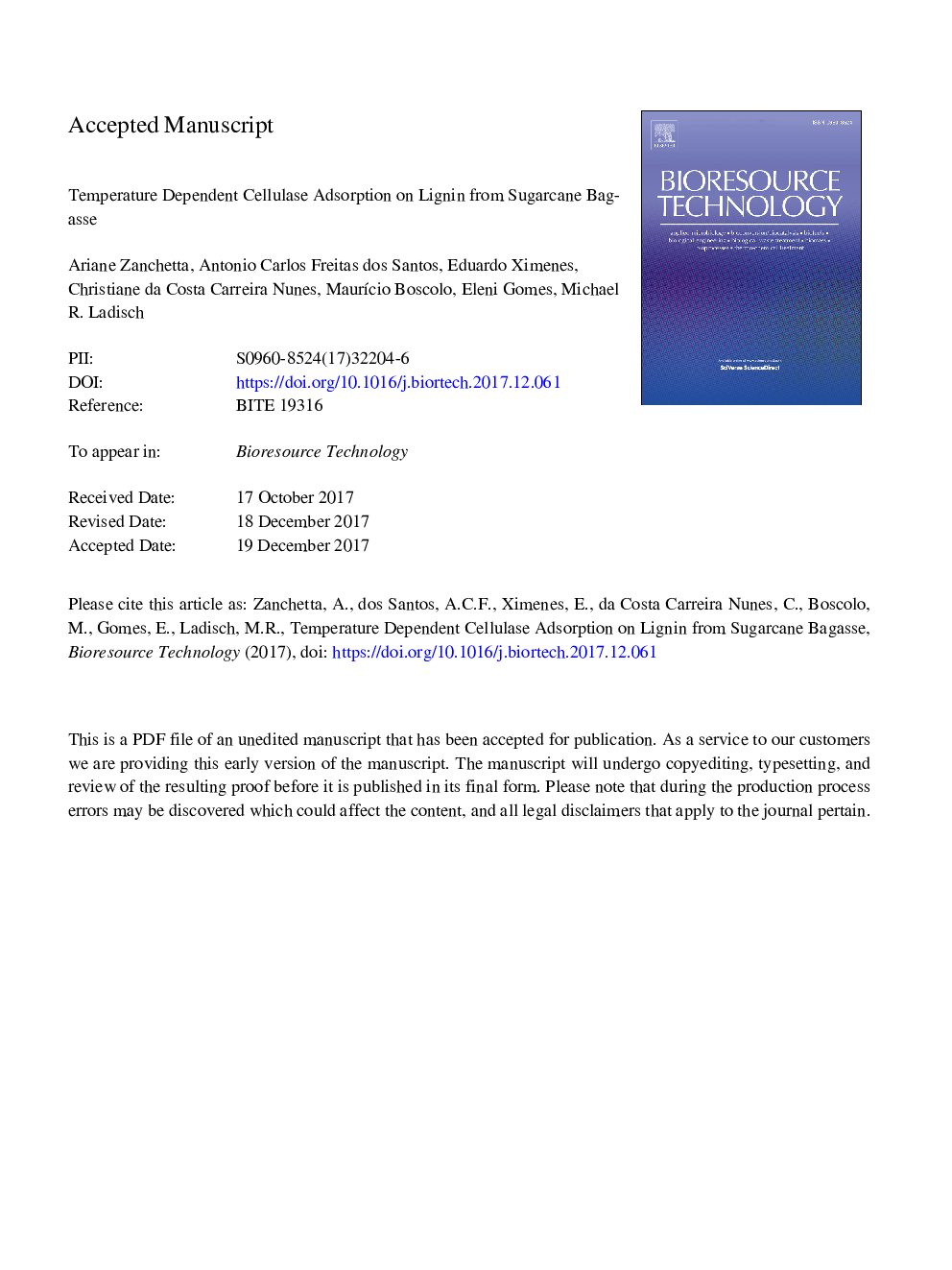| Article ID | Journal | Published Year | Pages | File Type |
|---|---|---|---|---|
| 7068450 | Bioresource Technology | 2018 | 31 Pages |
Abstract
Extents of adsorption of cellulolytic enzymes on lignin, derived from sugarcane bagasse, were an inverse function of incubation temperature and varied with type of lignin extraction. At 45â¯Â°C, lignin derived from acid hydrolyzed liquid hot water pretreated bagasse completely adsorbed cellulolytic enzymes from Trichoderma reesei within 90â¯min. Lignin derived from enzyme hydrolyzed liquid hot water pretreated bagasse adsorbed only 60% of T. reesei endoglucanase, exoglucanase and β-glucosidase activities. β-Glucosidase from Aspergillus niger was not adsorbed. At 30â¯Â°C, adsorption of all of the enzymes was minimal and enzyme hydrolysis at 30â¯Â°C approached that at 45â¯Â°C after 168â¯h. Hence, temperature provided an approach to decrease loss of enzyme activity by reducing enzyme adsorption on lignin. This helps to explain why simultaneous saccharification and fermentation (SSF) and consolidated bioprocessing (CBP), both carried out at 30-32â¯Â°C, could offer viable options for mitigating lignin-derived inhibition effects.
Related Topics
Physical Sciences and Engineering
Chemical Engineering
Process Chemistry and Technology
Authors
Ariane Zanchetta, Antonio Carlos Freitas dos Santos, Eduardo Ximenes, Christiane da Costa Carreira Nunes, MaurÃcio Boscolo, Eleni Gomes, Michael R. Ladisch,
